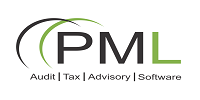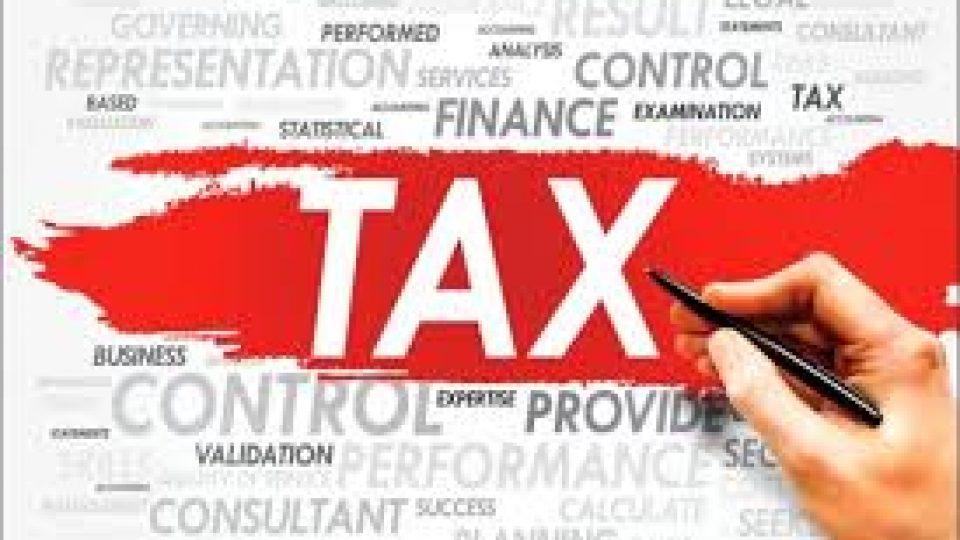LIST OF TAXES IN NIGERIA
- Company Income Tax (CIT) this is one of the major types of taxes collected by Federal Inland Revenue Service (FIRS) and chargeable on all companies (other than Companies engaged in petroleum operations) incorporated in Nigeria. It is charged on profits that accrue in, be derived from, brought into, or received in Nigeria while profits made from business activities outside Nigeria is exempted from being assessed under CIT. Recently for companies with annual gross turnover of not more than N25 million would be completely exempted from paying CIT, but must file for companies income tax returns. While companies with more than 25 million but less than 100 Million will be assessed at 20% .It is a 30% tax charged on profits made by companies with over 100 Million turnover. CIT must be filed on or before 6 months from the end of accounting year while a newly registered company that the end of the accounting year not fall within the tax year can file 18 months account.
Existing companies must file returns within six (6) months from the end of the accounting year whereas newly incorporated are expected to file returns within eighteen (18) months from the date of incorporation or not later than six (6) months after the end of its accounting period.
A company is charged minimum tax when they makes loss, have no tax payable or the tax payable is less than minimum tax. This type of Tax is governed by Cap C21 LFH 2004 and the latest amendment was in 20192
2. Personal Income Tax (PIT): Personal income Taxes are levied on the income, wages and earnings of individuals. Earnings subject to income taxes can come from diverse sources, including wages, salaries, dividends, interest, royalties, rents, and product sales. It is a progressive tax and remitted to the State Inland Revenue Service of the jurisdiction in which the payer reside, irrespective of the institutions or bodies they work for which could be the federal, state or local governments or private organizations except Nigeria Police, Armed Force, FCT resident and foreigners outside the country but earning income in Nigeria (non-residents).
The self-employed individual are expected to also file a return of income i.e profit from any trade, business and profession, for whatever period as long as trade, business and profession may have been in existence or carried on in the preceding year.
An individual taxpayer is entitled to a Consolidated Relief Allowance of N200,000 or 1% of gross income whichever is higher plus 20% of gross income. Individuals are subject to minimum tax of 1% of gross income where the income is less than N300,000 per annum. This type of Tax is governed by Cap P8 LFN 2004. The latest amendment was in 2011
3. Value Added Tax (VAT) this is an indirect Tax levied on goods and services. The VAT system is an invoice-based and paid at several points throughout goods or services production lines, it implies that each time value is added and a sale is made. Every seller in the production chain charges a VAT tax to the buyer. The amount of tax levied at each sale along the chain is based on the value added by the latest seller. It is expected to file VAT monthly at the correspondence Tax Office of the tax payer. The previous month activities i.e Sales or Services rendered should be reported on or before the 21st of the following month E.G Sales activities for the month of January must be filled and paid for on or before 21st of February. The Law govern this Tax is (VAT) Decree 102 of 1993 and Cap VI LFN. It was reviewed to 7.5% from 5% 2019 Finance Acts
4. Withholding Tax (WHT) A withholding tax, is an income tax to be paid to the government by the payer of the income rather than by the recipient of the income. it is believe to be a tool used to capture as much prospective taxpayers that might likely want to evade tax into the tax net thereby widening the income tax base, the tax is thus withheld or deducted from the income due to the recipient at source. This type of tax is not charge on all transactions but specifically for transactions that involve contract e.g rent, supply of goods and services to a destination requested by the client. WHT deductions are most times referred to as advance income payment. The rate for WHT ranges from 5% to 10% depending on the transaction.
5. Petroleum Profit Tax (PPT): This is a tax on income of companies engaged in upstream petroleum operations while tax to be charged is on the profits of each accounting period of a company and shall be taken to be the aggregate of adjusted profit, assessable profits and chargeable profits.
The Profit Petroleum Tax rates are as follows:
- 50% for petroleum operations under production sharing contracts (PSC) with the Nigerian National Petroleum Corporation (NNPC).
- 65.75% for non-PSC operations, including joint ventures (JVs), in the first five years during which the company has not fully amortised all pre-production capitalised expenditure.
- 85% for non-PSC operations after the first five years.
6. Capital Gain Tax (CGT): is a tax on the profit obtained from disposal or exchange of chargeable assets. The rate of Capital Gains tax is 10% of the profits from the sale of the qualifying assets. It is recognized in law under the Capital Gains Tax Act Cap C LFN as amended Capital Gains Tax. The allowable expenses in the cause of disposing the chargeable asset will be deducted from sales proceed to arrive at the Net Sales Proceeds then deduct the original cost of purchase of the disposed chargeable asset.
7. Stamp Duties (SD) This type of tax is governed by Stamp Duties Act, CAP S8, LFN 2004 (as amended). It is a tax administered on instrument or written documents, it is primarily tax on transactions which involve an acquisition of land or buildings. Both Purchaser/transferee has to pay stamp duty in case of exchange of properties. Stamp duty is chargeable either at fixed rates or ad valorem (i.e. in proportion to the value of the consideration), depending on the class of instrument or written document. This type of tax due to companies is assessed and collected by FIRS while Stamp duties due from individuals are paid to the respective State Government, while corporate bodies pay theirs to the Federal Government. A commissioner of Stamp duties adjudicates on the amount of duty payable on the instrument. It is charged on Share Capital, Deed of Assignment, Debenture, Bills of Exchange, Proxy Forms, Guarantor Forms etc.
8. . Education Tax (EDT) This tax was introduced into the Nigerian tax system to address the funding crisis in the education sector. The Act aims at involving the private sector, being a beneficiary of the products of education to partake in its funding through contribution to the Tertiary Education Trust Fund (TET Fund). The rate of Tertiary Education tax is 2 percent (2%) of the Assessable profit of a company registered in Nigeria. Assessable profit is adjusted profit or part thereof that is assessed to Companies income tax in an assessment year.
The Tertiary Education tax imposed is due and payable within 60 days after the Federal Inland Revenue Service has served notice of the assessment on a company.
9.National Information Technology Development Levy (NITDL) This is the type of tax levied on the profit before tax of Companies in Nigeria. It is governed by the National Information Technology Development Agency Act (NITDA). The applicable rate is 1% profit before tax with an annual turnover of N100, 000 and above. The levy is computed and filed alongside when Company Income Tax returns is being submitted for a self-assessment. The penalty of non-payment of the levy within 30 day of a demand notice by NITDA include the unpaid amount plus 10% of unpaid amount and interest at the prevailing minimum rediscount rate of the Central Bank of Nigeria.
10.Tenement Rate: These rates are property taxes paid by landlords or occupiers of a building payable to local government Councils as part of their internally generated revenue. It is a consolidation of ground rent and neighborhood improvement levy. The applicable formula provided by the reviewed law.



